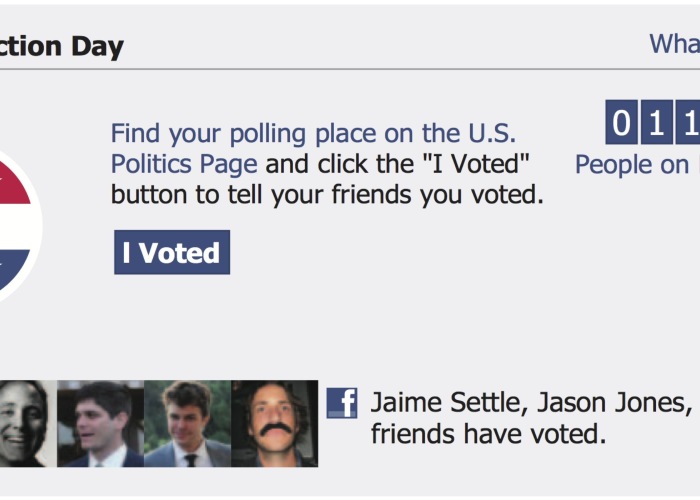During the 2010 election, Facebook posted a “Today is Election Day” prompt to certain users and not as part of a social study. It was found that those exposed to the message were 0.39 percent likelier to cast their vote than the other groups, amounting to an extra 60,000 votes cast by the “social message” recipients and possibly pushing as many as 340,000 people to vote because of the poke.
“Social influence made all the difference in political mobilisation,” said James Fowler, a professor of political science at the University of California at San Diego who led the experiment. “It’s not the ‘I voted’ button or the lapel sticker we’ve all seen that gets out the vote. It’s the person attached to it.”

“Such interventions also have the potential to promote positive social changes, such as increasing the rate of HIV testing, reducing violence, improving adherence to exercise, or increasing political mobilization and awareness,” said New York University academic Sinan Aral. “In this way, the science of social influence may have dramatic implications for products, politics and public health.”
Source: EconomicTimes.com

